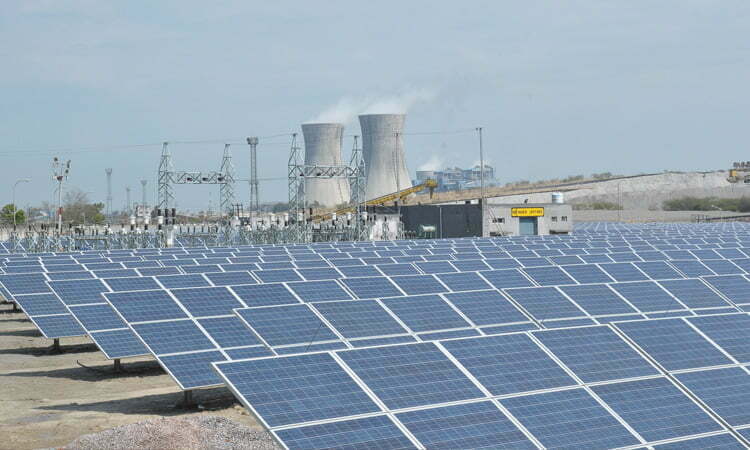
The news emerged as engineering company Gensol announced a win in a tender of similar size in the state of Gujarat.
The new NTPC tender is for 150MW/300MWh of battery storage at the site of an NTPC solar PV plant in the Madhya Pradesh city of Gadarwara, and 100MW/200MWh at one of the IPP’s thermal power plants in Solarpur, Maharashtra.
Formerly known as National Thermal Power Corporation of India, the company rebranded to NTPC Limited in 2005.
Projects would have an expected life of 12 years, with two daily cycles, each of 2-hour duration, with a guarantee of less than 2.5% degradation in megawatt-hour terms annually and nominal roundtrip efficiency at the point of interconnection to the 132kV network of 80% or more.
The scope of works for bidding developers includes the supply and transportation to site of BESS equipment including inverters, power conversion system (PCS) and energy management systems (EMS); design and engineering; grid integration and commissioning; as well as providing warranties, operations and maintenance (O&M) and insurance for the 12-year lifetime of the projects.
A bidding document posted by the company (PDF here) gives more comprehensive details of the scope of work and eligible bidders. Eligibility criteria include a track record of working on grid-connected BESS projects of 40MW or more cumulatively, as well as financial and other project experience requirements.
India-based and international entities are entitled to submit bids, with the window for enquiries from prospective bidders closing in early July. Bids comprising price and techno-commercial components must be submitted by 18 July, and on that date, bidding for techno-commercial bids will open.
Gensol wins 250MW/500MWh Gujarat tender
NTPC is among the government-owned entities that have been holding tenders in India for battery storage, either standalone or in hybrid pairing with generation facilities, along with others, such as the Solar Energy Corporation of India (SECI).
SECI is due to host the first large-scale tender for BESS supported by the Union government’s viability gap funding (VGF) after sending out pre-tender documents in March. VGF will help improve the economic feasibility of strategic energy storage projects that the government hopes will help kick off further deployment waves.
In fact, as of October last year, around 9GW of tenders for “firm and dispatchable renewables” – backed with storage – had been launched by state agencies in the year-to-date for 2023 according to consultancy JMK Research.
Locally held tenders have been launched by regional utility and transmission and distribution (T&D) organisations, and the winner of one such competitive solicitation was announced the same day as NTPC launched its IFB.
EPC and electric mobility group Gensol Engineering bid with the lowest tariff and won in a reverse auction hosted by Gujarat Urja Vikas Nigam Ltd (GUVNL), a holding company owned by the state of Gujarat responsible for the bulk purchase of electricity and sale to four distribution companies (Discoms).
The 250MW/500MWh project is worth IR13.4 billion (US$160.4 million), Gensol said in a 12 June announcement, noting that GUVNL could take a ‘greenshoe’ option to expand the project to 500MW/1,000MWh which would generate IR26.8 billion for the company over the 12-year term of a battery energy storage purchase agreement (BESPA).
Debmalya Sen, India lead at the World Economic Forum (WEF), posted some of the bid figures for the tender to LinkedIn earlier this year as bidding progressed, noting that Gensol’s winning bid at roughly IR372,978/MW/month represented a fall of 66% in two years from a previous round of tenders.
It also followed a March tender win with GUVNL for Gensol, in which its winning bid for a 70MW/140MWh was IR448,996/MW/month, while fellow winner and second-lowest bidder, IndiGrid, entered a bid at IR449,996/MW/month. IndiGrid, which announced its win in March, received a GUVNL letter of intent (LOI) for its 180MW/360MWh project.
WEF’s Debmalya Sen noted that as well as registering a 17% fall in just one quarter, GUVNL’s tenders are becoming more competitive in that growing numbers of bidders are joining, from eight in the March Phase II tender to 13 in the just-announced Phase III results.
Sen said that VGF of the type to be included in a total of 4GWh of procurements including SECI’s next tender will likely boost competition even more, adding that “the coming days look super-promising and exciting for batteries in India.”

